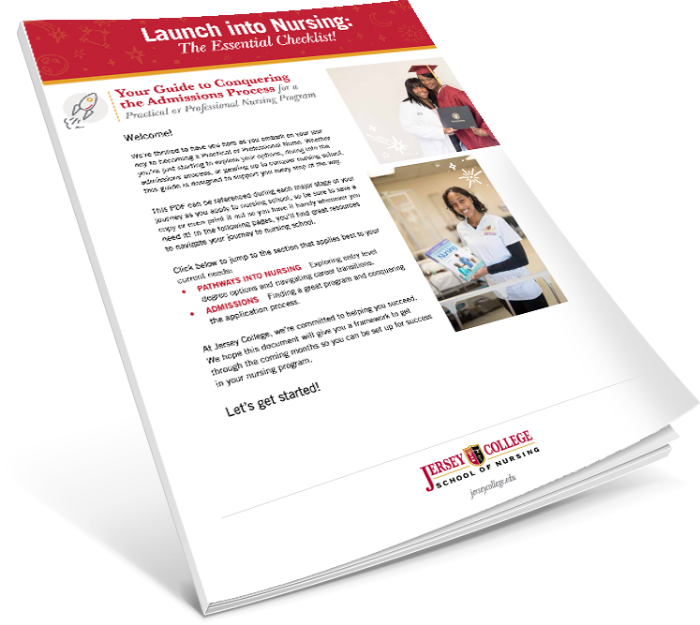
CNA to RN: Making the Transition Easy
Why Become an RN?
RNs have significantly more authority and responsibility compared to CNAs. They make decisions about patient care, help perform and analyze diagnostic tests, and educate patients and their families on the patients' health conditions and at-home care.
Nursing assistants may provide backup and help RNs carry out their duties, but RNs are the ones who are primarily accountable for these responsibilities. Consequently, RNs typically enjoy a higher degree of job responsibility and better pay than nursing assistants.
Here is a closer look at some of the differences between CNAs and RNs:
| CNA | RN |
|---|---|
| Lower average pay: $38,2001 | Higher average pay: $86,0702 |
| Quicker education path: Most CNAs complete a state-approved nursing assistant training program and pass a certification exam. | More education required: Most RNs have a bachelor’s degree, associate’s degree, or a diploma and must pass the NCLEX-RN exam. |
| Lower accountability: CNAs perform day-to-day tasks with fewer responsibilities. | Higher accountability: RNs have more responsibilities and more patient engagement. |
| Limited career advancement opportunities: You typically need more education or training to progress higher. | Ample opportunities for career growth: For example, RNs can specialize or work toward a leadership or management position. |
| Fewer job openings: 62,7003 | More job openings: 195,4004 |
| Good job security: 5.6% unemployment3 | Improved job security: 1.6% unemployment4 |
1 CNA salary data from BLS
2 RN salary data from BLS
3 Nursing aide/assistant data from U.S. News & World Report
4 RN data from U.S. News & World Report
5 Medical and Health Services Managers data from BLS
The benefits of transitioning from CNA to RN go farther than a salary increase and greater responsibility. After earning an RN degree, nurses can specialize in various areas and work in various facilities according to their interests and strengths.
Some of the most common career paths and specializations for RNs include the following:
- Pediatrics
- NICU
- Critical Care
- Oncology
- Geriatric Care
- Cosmetic Surgery
- Rehabilitation
- Cardiovascular
- Genetics
- Neonatal
- Public Health
- Addiction
After completing an accredited RN program, nurses have more freedom to decide where they want their career paths to lead. They open themselves to a broader range of opportunities with more room for growth and satisfaction in their careers.
Related Resources:

FREE Essential Guide to Nursing School: Get Accepted, Survive, and Thrive!
The RN Program at Jersey College
Jersey College prepares all students – including those transitioning from CNA to RN – for the realities of nursing in today's world.
In addition to learning academic theory and nursing history, students gain hands-on clinical experience and receive targeted, up-to-date coaching on passing the NCLEX and re-entering the workforce as knowledgeable and empowered registered nurses after graduation.
Our RN program teaches students to approach patient care with a holistic outlook that takes every aspect of the patient's background, including their physical, emotional, spiritual, economic, and social needs.
RNs from Jersey College can be assets to their workplaces, providing indispensable support for their teams and expert, compassionate care for their patients.

Sign up to get new articles in your inbox and stay updated on our nursing programs.
Career Outlook
As the baby boomer generation ages, nursing is projected to grow to accommodate their needs. Additionally, the rise of chronic illnesses such as type 2 diabetes and heart disease has contributed to an increased demand for nurses to educate patients on their conditions and manage their long-term care.
According to the Bureau of Labor Statistics, approximately 194,500 new jobs are projected to open each year between now and 2033 for registered nurses. Employment for registered nurses is projected to grow by about six percent during that time.
About 60% of RNs work in hospitals, while 18% work in ambulatory care facilities. Other common work environments include schools (3%), nursing and residential care facilities (6%), and government institutions (6%).
In 2023, the median annual salary for registered nurses was $86,070, compared to $38,200 for CNAs. Nurses' earning potential varies state to state; however, the lowest 10% of RNs earned $63,720 per year – nearly twice what CNAs earn on average.
The future is bright and busy for anyone aspiring to enter the healthcare practice. RNs have a particular advantage since their advanced educational background makes them eligible to specialize in higher-paying fields.
Accreditations & Licenses
Jersey College maintains campuses in several states. As of March 2023, that includes Arizona, Florida, Indiana, New Jersey, Pennsylvania, and Tennessee. Each campus is accredited, licensed, and/or approved in accordance with its state's laws.
Jersey College is accredited by the Commission of the Council on Occupational Education (COE ), an agency approved by the Department of Education to accredit post-secondary institutions offering certificate, diploma, and/or associate degree programs.
Visit one of our campus pages to learn more about each campus’s offerings and accreditations. You can also learn more about our accreditation and licenses, or contact our office any time!
Get Started
If you're ready to advance your career from CNA to RN, Jersey College is ready to assist you. There's never been a better time to expand your horizons within the nursing field and take that next step toward achieving the lifestyle you envision for yourself.
Contact a representative to get started today!
Based on the success of our programs, we have grown to serve communities in 7 states (and counting!). Find a campus near you to start your NurseLife.

FREE Essential Guide to Nursing School: Get Accepted, Survive, and Thrive!

